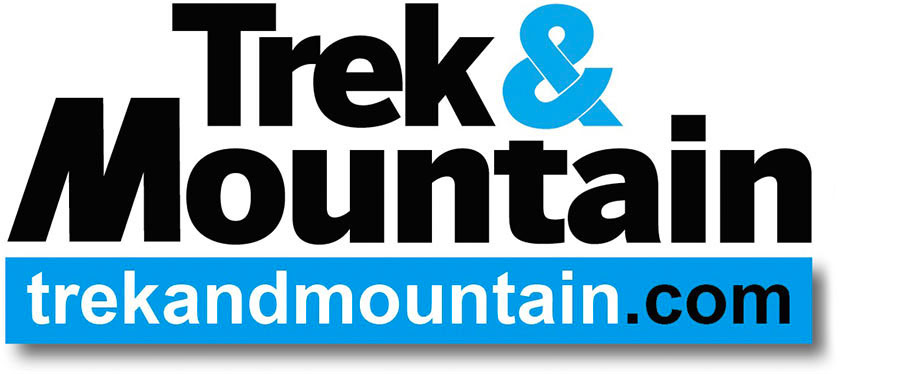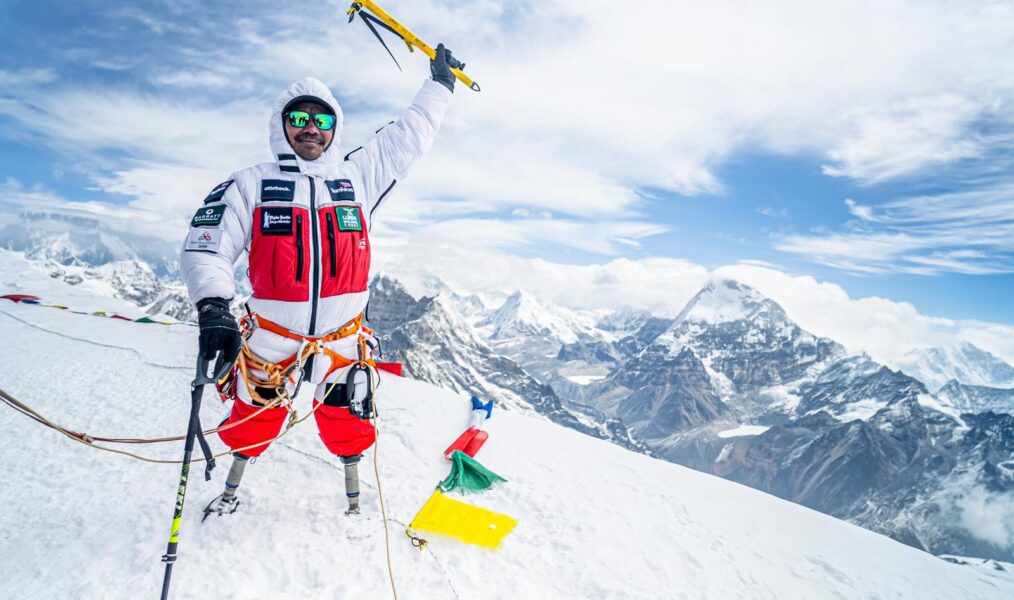Climbing Everest and other Himalayan giants is rightly seen as a great personal achievement, but now imagine doing it without your legs. To many this would seem utterly impossible, but to Hari Budha Magar this was just another challenge in a life that has seen him overcome trauma and hardship time and again. Growing up in a remote part of Nepal during the civil war, he was saddled with an adult’s responsibilities before he was even in his teens. Joining the Gurkhas gave him and his family the opportunity of a better life, but while serving in Afghanistan Hari was injured by an IED and lost both his legs. T&M Editor Chris Kempster chats with the inspirational Nepali mountaineer about what happened next and how he managed to overcome the adversity of his life-changing injuries…
Tell us a bit about your childhood and what it was like growing up during the Nepalese civil war?
I was born in a cowshed at 2,700m, went to school barefoot (around 45 minutes each way) and learned to write on wooden plank with chalk stone. I was married at 11, and grew up during the civil war. We didn’t have choice; we had to join the rebels or support the government – there was no middle ground. I saw many people kill each other just because they had different opinions.
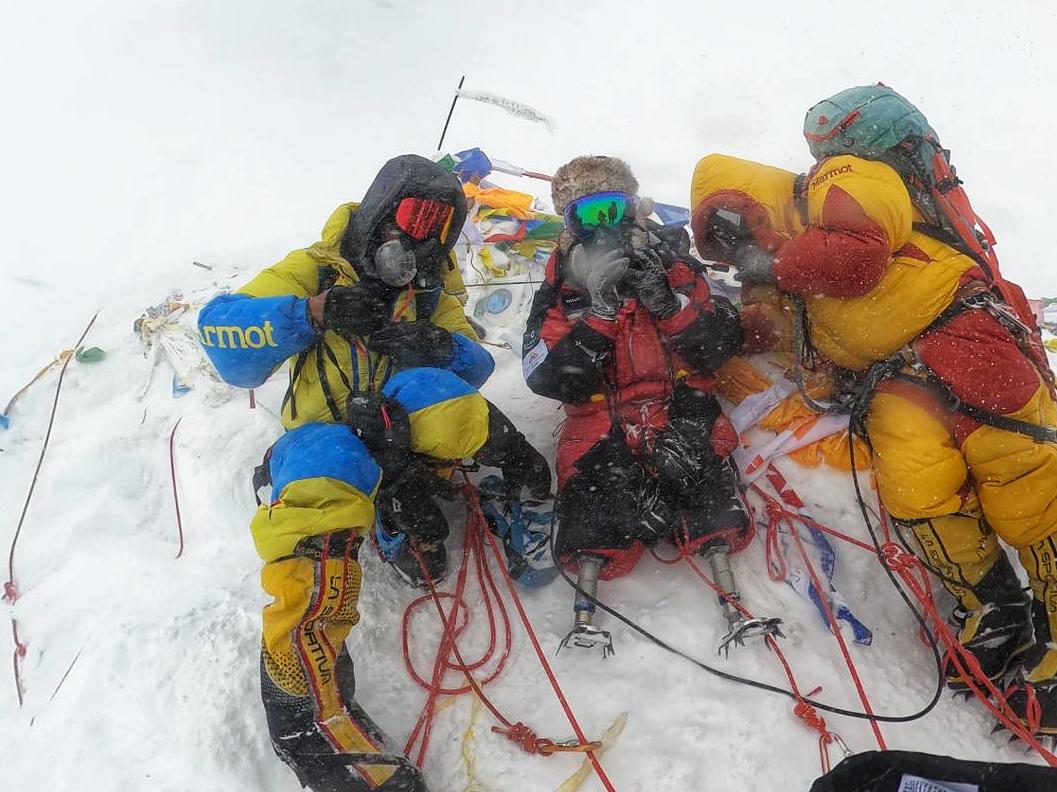
On the summit of Everest in 2023
Why were you required to marry at age 11, and did that mean you had to work at this young age?
In many remote villages in Nepal, even now, children have to do what their parents want them to be or do. My dad told me that I was going to get married; I refused, but he said you leave your school or get married. I knew that education was important, so I had no choice other than to get married. There was no child protection service, not even now, and I couldn’t run away from that age so I just did what my father asked me to do. There’s no work apart from working in the field, even now in remote places in Nepal. All children in the village worked in the field or with cattle before we went to school or after we back from school, and weekends and school holidays. The road was three days away, so everything had to be done by hand, on foot and carrying on your back. Even getting salt took two weeks; we used go once every year. We had to collect grass for cattle, wood for cooking, plant and harvest the crops, and it used to take 30-40 minutes just to get water. Apart from salt and oil, everything came from the farm. Even when working the whole year in the fields, it was hard to get enough to eat.
Being accepted into the Gurkhas was a huge achievement – what did this mean for yourself and your family?
Simply it meant a better life – not just for me but my whole family – but also being safe from the civil war at the time.
How did life in the army suit you, and were you able to do any mountaineering or other outdoor pursuits while serving?
I had a very good life and career in the Army, unfortunately I couldn’t serve longer due to my injury. I didn’t do much mountaineering as part of adventure training, but I was able to climb Mt. Kinabalu twice and Mt. Kenya once – but they are not that high. You don’t really need mountaineering experience to climb those mountains, they are like walking. As part of Army training, I did a lot of adventures like kayaking, canoeing, rafting, skiing, cycling, horse riding, rock climbing.
When did you meet Krish Thapa, and did he encourage you to get into mountaineering?
I met Krish in 1999 after coming to the regiment 1st Battalion The Royal Gurkha Rifles (1 RGR). He is the one who took me to all the mountains around the world after my injury.
You must have been in a very bad place mentally after you were injured in Afghanistan?
Yes, I thought my life was finished. I would have to sit on wheelchair rest of my life and need a carer. I completely lost my confidence and didn’t know what to do. I became alcoholic to control my pain and emotion. I tried to take my life.
What was the turning point in becoming more positive about life after your injury?
I was in a very bad condition and thought I would die soon. It was okay if I die; I just had half a body and my story will end there, but my family were going to suffer due to my actions, so I wanted to live my life for my family from that point. I didn’t know what I was going to do.
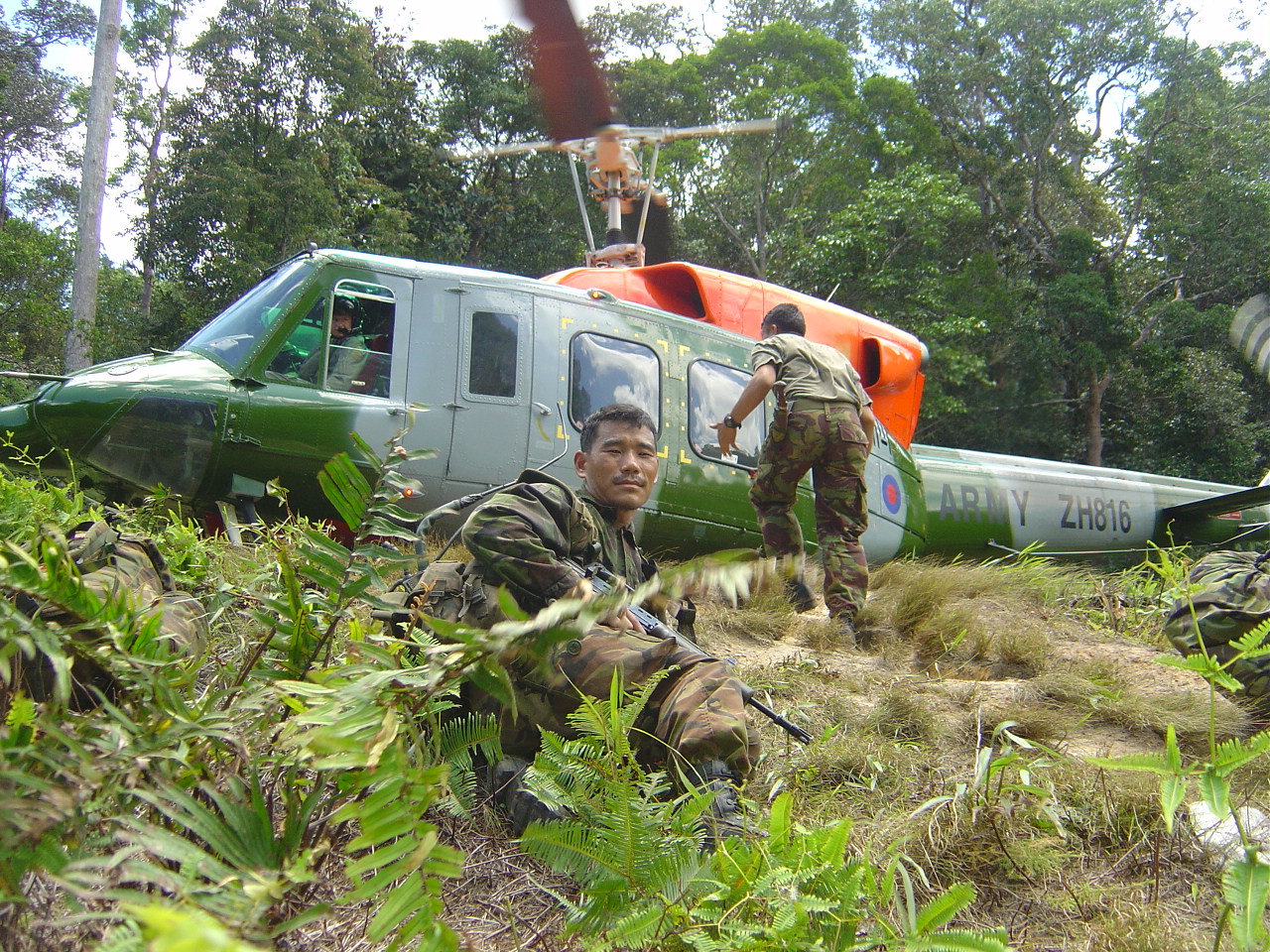
On active duty with the Gurkhas
Which outdoor activities have you done since your injury, and which have you enjoyed the most?
I’ve done kayaking, canoeing, rafting, skiing, cycling, horse riding, rock climbing, camping, fishing, golf and mountain climbing, but I really enjoyed mountain climbing, skiing and kayaking.
When did you decide you wanted to climb Everest, and why?
It was long process. I wanted to climb from my childhood, tried when I was in service, and couldn’t. I decided after testing myself at altitude, climbing on ice and snow, and practising for the Hillary Step.
How important has Krish Thapa been in helping you achieve your mountain goals?
He was very important, particularly when I started climbing mountains and planning my expedition.
Tell us about the special prosthetics you use that have crampons attached?
There are no crampons designed for above knee amputees to climb mountains, so we designed and developed some over several years, and installed heating sockets. I used different feet and length of prosthetics, depending on the terrain. I have friends in America who have helped me to design these legs.
Aside from your prosthetics, is there any special equipment or clothing you use?
Most of my clothing was designed and adopted according to my needs, like summit suit, shorts, gloves etc. I had to use different ice axes and walked poles for various terrain.
You had already climbed several 6000ers before attempting Everest – how did the whole experience of being on Everest compare to previous expeditions you’ve been on?
Not much difference other than using oxygen and the very fine line between success, failure and death. I just needed more logistics and manpower to move up and down on the mountain.
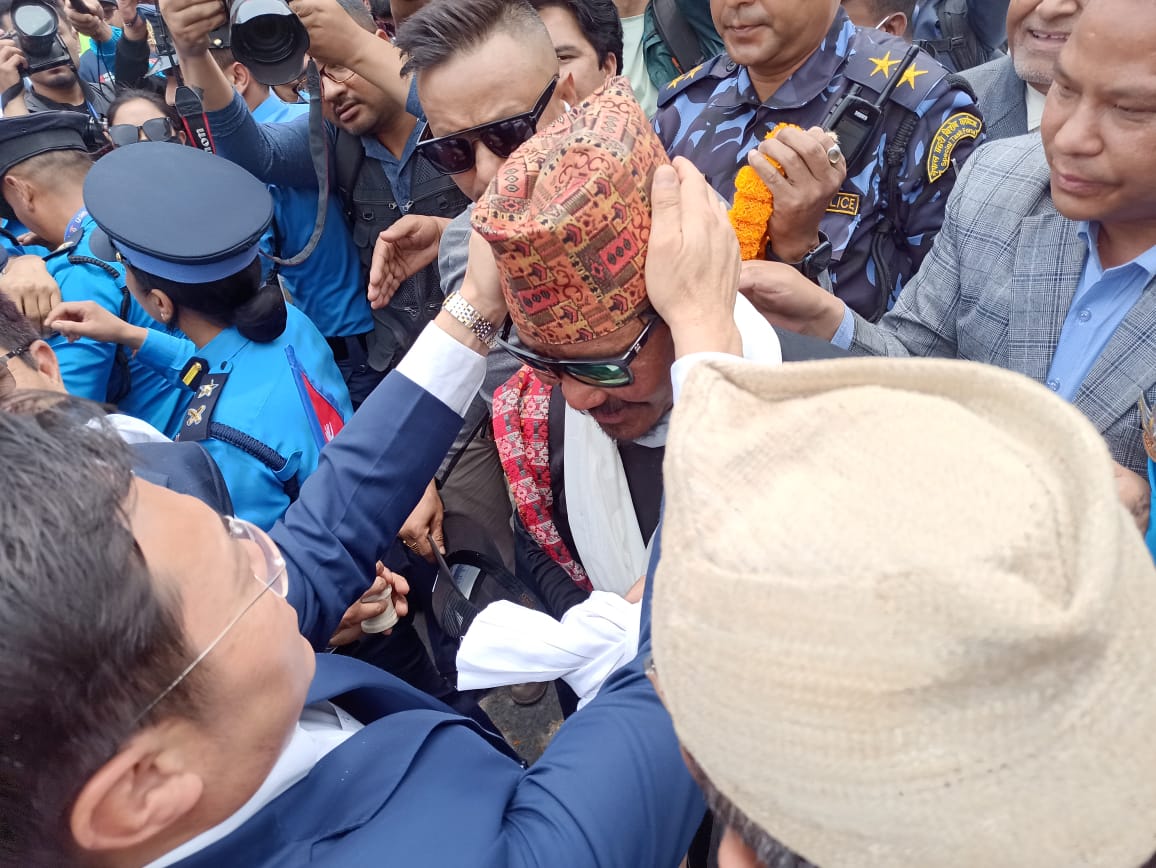
Receiving a hero’s welcome back in Kathmandu
With bad weather closing in and running low on oxygen, you came very close to being in trouble on Everest – how did you and your team manage to push through and get down to safety?
I feel we were very lucky to come back safely, the whole team. I realised the money only works once till certain level. When it comes to life and death, we need our reason why to push in that situation. Some of my team abandoned me on the mountain but some they risked their life to save me. If I had a power to give medal I would give to those Sherpas who worked heroically. Even the weather was bad going up, though it was pretty good when we came down and that’s one of the reason that we survived. The satphone did an amazing job but the camp manager did a great job too, to arrange oxygen to bring up the mountain, so they saved us. I’m particularly thankful to assistant kitchen chef Sonam Sherpa who brought up oxygen with hot water and saved us.
You received a hero’s welcome on your return from Everest – how did that feel after all you’ve been through, and how do you think this will change your life moving forward?
It was just amazing to be received in such a special way. I felt honoured, but also proud. I didn’t expect that. I climbed the mountain to raise awareness of disability and inspire others to climb their own mountains. I was banned by same authority and later I was welcomed my same authority which I felt that I have changed their perception on persons with disability. I am the same person with same heart; I am now more busy because many people want to talk to me and hear my story but I will try not to forget my roots where I am from because I believe that if I forget my roots, I will loose my identity.
How important has having the miltary mindset been when in situations like this on the mountain?
My military experience was definitely very helpful and key to the success of the expedition. I used many principles from the military, like leadership and momentum, but also overcoming adversity and taking on challenge and risk was also helpful and important.
What words do you have for anyone who feels restricted by their physical condition?
Restriction is in our mind, and if we overcome our mind we can definitely overcome other things. If we set our mind our body will follow. Our condition might be our weakness, but that doesn’t mean that we can’t do anything. No one is perfect in this world, and with the right mindset and positive attitude we can do anything. Life is all about adaption and nothing is impossible; if we can adapt accordingly to the time and situation, we can do anything. The whole of human evolution came from challenge, so to learn, grow and achieve we need to challenge ourselves. It’s amazing what we can achieve when challenge ourselves and push our limits.
How do you intend to continue the work of inspiring people with disabilities to live the fullest life they can?
I have dedicated rest of my life to creating awareness of disability, so whatever I will be doing in the future will be linked to disability awareness. I intend to do more adventures to continuously making awareness of disability and inspire others to take challenges, climb their own mountains, fulfill their dreams through more adventures.
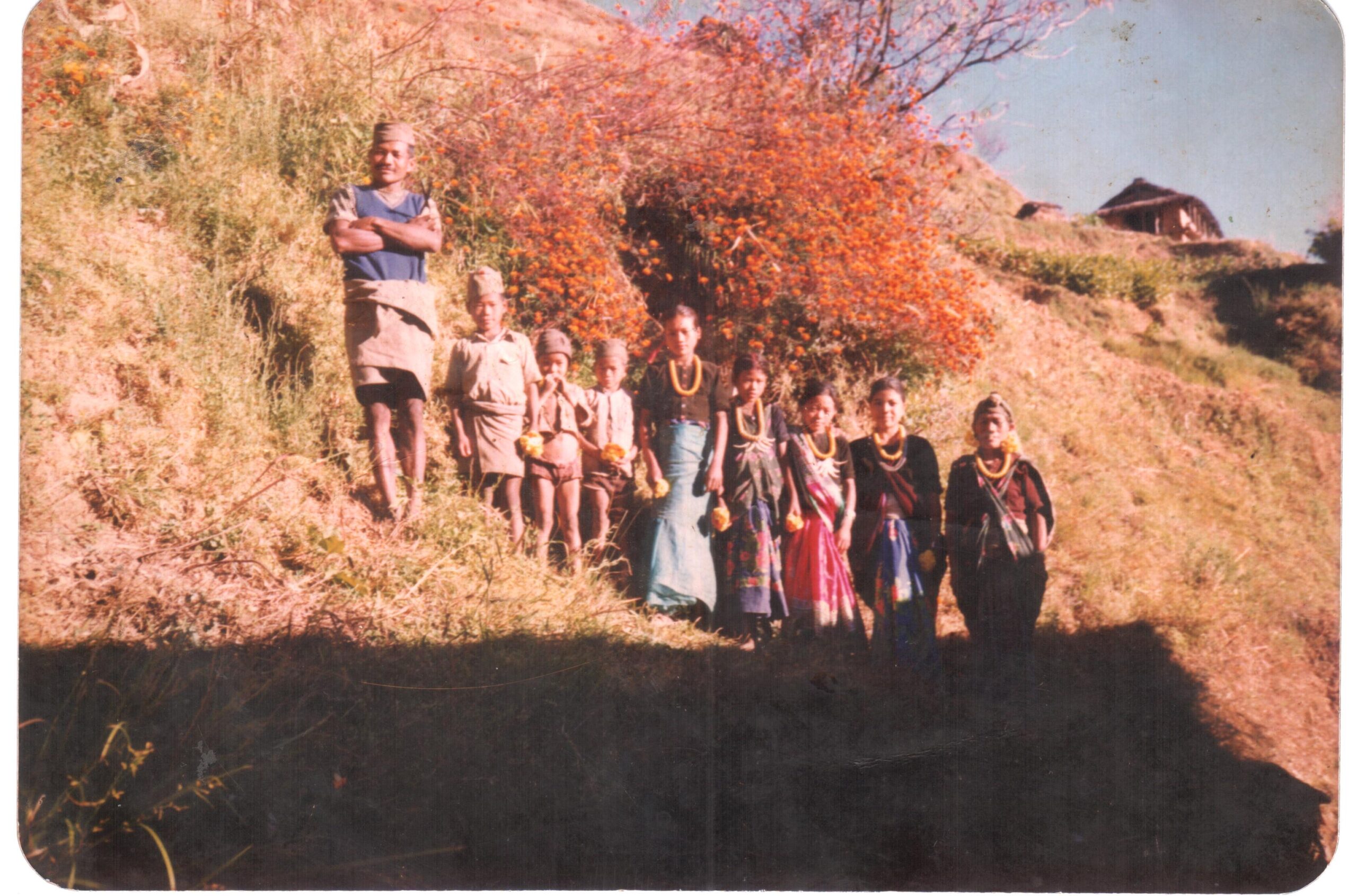
Hari grew up in a remote village in Nepal, pictured here with his family
Do you have any mountaineering heroes that particularly inspire you, either Nepali or from other nations?
I am always inspired from my childhood by Sir Edmund Hillary and Tenzing Norgay who summited the Everest first time. If they haven’t climbed I possibly wouldn’t even dare to dream to climb Mt. Everest.
What does the future hold for you, both in terms of mountaineering, and life generally?
I will definitely stay on the mountain for while to continuously making awareness of disability. I love other adventures, so I would love to try other adventures too when I have time.
Finally, I was born and grew up in Aldershot, home of the Gurkhas – my favourite restaurant in the area is the Everest Tandoori. Which is yours and what’s your favourite dish?
Amazing! I was the last recruit intake to train in Church Crookham near by Aldershot. I am food lover, I am not really spicy food man. Honestly, I love seafood and traditional Nepalese food. I haven’t find typical Nepalese restaurant in the UK yet. The most of Nepalese restaurant menus are designed for western people. I hope there will be the one!
Find out more about Hari and his mission at www.haribudhamagar.com/
